#just graduated
Text
Hei!
I graduated, just got my diploma, and I feel like it's time to pull myself together. I've been drifting in the void for a few weeks and resting wondering what's next, but it's time to start a productive time...
I will try to reactivate my 100 days of productivity challenge, but I will write a separate post about it, starting it. So far my goal is to make a great portfolio, intensively learning Norwegian, daily yoga and daily drawing. I will start looking for a job in November or December. I'm taking my time, because I've already come across a terrible place that exploits young people and their energy.
I'm starting my new bullet journal and reaching my goals!
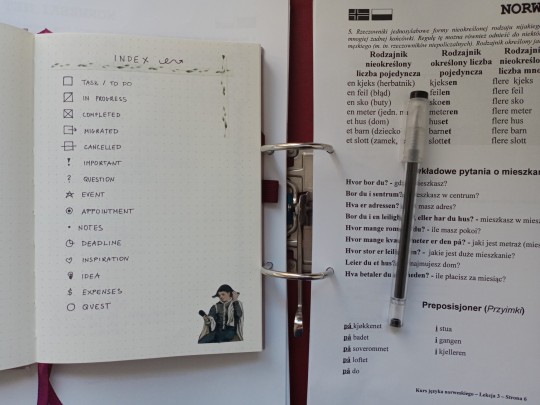
#studyblr#holyarchistud#studying#studyspo#study#student#uni#bullet journal#planning#norwegian#just graduated
50 notes
·
View notes
Text





guess who GRADUATED!!!!!
WOOOOOOO
my degree is a mouthful prepare yourself: environmental and natural resources with a concentration in conservation biology and a minor in environmental science and policy
yeehaw 🤠 🌿
#clemson tigers#clemson university#clemson#college#degree#graduate#graduated#just graduated#grad#pictures#photoshoot#grad photoshoot#me#cute
22 notes
·
View notes
Text

I miss the rat empire :'3
41 notes
·
View notes
Text
Anne Rice, Gay Vampires and the Mistreatment of Claudia in Interview with the Vampire
This was my senior thesis so enjoy.
Intro
Anne Rice’s debut novel Interview with the Vampire (1976) was not well received at the time of its publishing. One reviewer for the New York Times, Leo Braudy, even went so far as to say “there is no story here, only a series of sometimes effective but always essentially static tableaus out of Roger Corman films, and some self‐conscious soliloquizing out of Spiderman comics, all wrapped in a ballooning, pompous language” (Braudy 1976). However, it is now widely considered to be one of the best-selling novels of all time, having been made into a film 12 years after its release and maintaining enough popularity to be turned into a television series in 2022, some 46 years later. While not well received by critics, audiences loved it then and still love it now. Interview is the first novel to allow the vampire to tell their own story; along with the erotic overtones of the novel is what captured the attention of audiences around the world and what kept their attention. Currently, on GoodReads.com the novel has an overall 4.01-star rating with one reviewer writing “Dark and enthralling. This book asks readers to reflect on the constitutions of love and loneliness” while another comments on the writing style, “Anne Rice really makes you feel the depth of emotion that The Vampire goes through.” Both reviews are from 2023. Not only is Interview still relevant because of its content but the impact it’s had on the vampire genre as a whole. It’s opened the door to allowing vampires to not only tell their own stories but to allow them to feel deeply.
Throughout the novel, there is a heavy overtone of erotic desire, often homoerotic desire, mostly between the main character Louis and his vampire father/husband Lestat but also with his later lover Armand. There are also instances of erotic desire with other characters as well; desire is often associated with the act of feeding. Many see the overall desire within the book as being gay, which is one of the reasons its popularity has persisted. While Anne Rice would later write openly gay vampires, this was not the time for that; instead, we are given subtle hints and overtones. After a conversation with Rice, Katherine Ramsland her biographer would write that “The new vampire is brought over into a dramatically changed existence with a gender-free perspective” (Ramsland 148), which confirms the homoerotic overtones within the book. Rice also claims to have attempted to write her vampires as androgynous and without male or female distinctions or as Ramsland said ‘gender-free’. The reality is that Rice has placed Louis and Lestat in traditional gender roles as parents while also feminizing their vampire daughter/lover Claudia. Claudia is also read as feminist through the way she is treated by those around her, in particular their failure to fully acknowledge her as a woman, not a child.
What the people say past and present
Vampires have always been seen as metaphors for various things from the hidden sexuality or desires of the author to a critique of society's values. As William Hughes, a Professor at the University of Macau, put it in his contribution to the book A Companion to American Gothic (2013), “The vampire, an enduring consensus suggests, is the perfect vehicle with which to express the myriad and conflicting cultural implications of human sexual activity and identity” (Hughes 340); vampire lit makes for a good space to explore sexual activity and identity. This idea can be further narrowed but adding gender into the equation. As Melissa Ames says in her chapter of the book Bitten by Twilight (2010), “The fact that the same gender critiques appear in both Dracula and in more contemporary texts suggests that the vampire narrative is a productive space to tease out problems of gender and sexuality, but that it is not a space that necessarily resolves such issues since they recycle decade after decade and text after text in similar fictional constructs”(Ames 44-45); seeing gender critiques within vampire literature has always been common and will continue to be. This idea was echoed in 2016 in the book Women and the Gothic, specifically by contributor Gina Wisker who points out that “female vampires destabilise such comfortable, culturally inflected investments and complacencies and reveal them as aspects of constructed gender identity resulting from social and cultural hierarchies” (Wisker 150), taking the idea of vampire literature critiquing gender a step further by focusing on the role of the female vampire.
Interview with the Vampire has been no exception to analysis or critiques of the portrayal of gender and sexuality within vampire literature. Many cite how Rice shows gender roles in the relationship between Louis and Lestat but most importantly they turn to Claudia and her mistreatment. Many see the way she is treated by those around her, including her vampire fathers, as placing her in a traditional female gender role, often through their lack of acknowledging that she is a woman trapped in a child’s body. Nina Auerbach notes in her book Our Vampires, Ourselves (1996) that Rice’s vampires are compulsive storytellers but Claudia never gets to tell her own story; only men tell her story (Auerbach 154-55). This is a starting point for the way many read Claudia as being placed in a gender role. Auerbach also points out how “Claudia is an adult male construction, a stunted woman who has no identity apart from the obsessions of the fatherly lovers who made her” (Auerbach 158), something that in 2013 Hughes similarly pointed out stating that “Louis’s narration, and his coda,[he] silently deflects the agency from her to him.” (Hughes 345). Claudia is placed in a gender role has persisted through time. The relationship between Louis and Lestat is no exception to a critique or analysis of gender within the novel. Most notably their gender roles are seen in the way they parent Claudia, but these roles can also be seen within their relationship and the way Rice has characterised them. Ken Gelder points out in his book Reading the Vampire (1994), stating that “Rice emphasises the differences between these two male vampires, with Louis as delicate and sensitive (i.e. feminised) and Lestat as aggressive and impetuous (i.e. masculinised)” (Gelder 112). Rice shows gender roles throughout the relationship between Louis and Lestat often feminising one and masculinising the other.
Pre-child Love
In order to establish a foundation of gender roles within the novel you must first look at the relationship between Louis and Lestat before they created/birthed Claudia. In particular, you must look at how their relationship can be seen as queer or as having homoerotic overtones. Iulia Pintilie¹ points out in her article for the Journal of Romanian Literary Studies that “a passionate tension between the male vampires is clearly suggested in the writing” (Pintilie 642), something that can be seen throughout the novel but most notably early in their relationship. When we first meet Lestat in the novel it is at Louis’s bedside where he thinks him a possible doctor or angel. We, like Louis, quickly learn that Lestat is not normal or human, he is some kind of creature. One that wants Louis to be like him so that he may take control of Louis's plantation (16).
Louis gives their relationship a homoerotic overtone when he, in response to being asked to describe his turning, tells the reporter “I can’t tell you exactly, any more than I could tell you exactly what is the experience of sex if you have never had it” (15); comparing the loss of virginity to his turning implying a sexual overtone. Their relationship and the turning itself are given further erotic overtones when Louis says “I remember that the movement of his lips raised the hair all over my body, sent a shock of sensation through my body that was not unlike the pleasure of passion” (19); again equating sex and being turned. After his turning Louis spends time staring at things like the buttons on Lestats coat or the trees and cobblestones, here Lestat breaks the erotic tone created in the turning scene. Lestats sends Louis to relieve his body of waste and upon Louis's return, he finds him already working on the plantation papers–cementing the idea that Lestat only wants him for his money. This is an aspect of their relationship that Pintilie describes as resembling “an eighteen-century aristocratic union in which the two husbands increase their family fortunes through their marriage” (Pintilie 647), though at this moment it's not yet a marriage.
In the five years that make up their relationship–some sixty pages of the novel–before Claudia’s birth/turning, Louis struggles to come to terms with what Lestat has made him. Louis often refers to how violent and unfeeling Lesast could be, noting early in their relationship how Lestat could go from one emotion to the opposite. Louis notes in Lestat's treatment of his father that “he’d been gracious to the old man, almost to the point of sickening, but now he became a bully” (23); Lestat goes quickly from one emotion to another. Louis also notes how easily Lestat is set off when he says that in response to Louis wishing to sleep alone, “he became furious” (34) before Lestat sets off in a small tirade over why they should be bunking together. Lestat’s repeated instances of enjoying violence or being unfeeling are what give him his masculised gender role whereas Louis is often repulsed by violence and feels deeply thus femisising him. Louis even notes Lestats lack of emotions when after describing his own deep feelings about being a vampire he tells the reporter “Lestat felt the opposite. Or he felt nothing” (31). Driving home the idea that Lestat is different from Louis.
In the five years prior to Claudia joining them, Louis experiences many things with Lestat from his own turning to learning to kill but never embracing it to his home being burned to the ground. Throughout it all Lestat remains a violent, emotionally unpredictable manipulator in Louis’s life, not unlike one would see in an abusive intimate partner. Louis even tells the reporter that “I had to stay with him” (35), going on to explain that Lestat was keeping information from him about his vampire existence as a way to force him into staying. Something Lestat continues to do even after turning Claudia. Eventually, towards the end of their five years, Louis finally decides he must leave Lestat when they flee to New Orleans city proper after an incident at the Freniere plantation. Louis tells the reporter “I have to leave him or die” (71), this decision comes only hours before he meets Claudia for the first time and days before they would turn her.
Post-child Love
When Rice chooses to have Louis and Lestat become fathers, she also makes them husbands cementing their “marriage” when they turn Claudia. While Lestat is the one to complete Claudia’s turning by feeding her his blood, Louis participates by having been the one to drain her thus making them both her vampire fathers. Louis is at first a reluctant ‘mother.’ He did not want to turn Claudia but Lestat forces him into it, using her as a way to trap Louis into staying with him. Candace Benefiel explains this scene best telling readers in her article for the Journal of Popular Culture² that “The whole scene reads like a couple having a child in an attempt to make a failing relationship once more viable” (Benefiel 267). In this case, it’s Lestat attempting to keep the relationship viable, he explains to Claudia after her turning that “ ‘Louis was going to leave us,’ (...) ‘He was going to go away. But now he’s not. Because he wants to stay and take care of you and make you happy.’ (...) ‘You’re not going, are you, Louis?’ ” (94). At this moment he is also revealing the truth of her turning to Louis as well. This plan of Lestat’s works, Louis tells the reporter that “Afraid of fleeing alone, I would not conceive of risking it with Claudia. She was a child. She needed care” (97), cementing his need to stay with the ‘family.’ As if Louis was a mother staying with an abuser to protect a child.
In making them parents Rice masculinizes Lestat–he is only ever the ‘father’ and feminizes Louis–he is called ‘father’ but acts as a ‘mother.’ Lestat takes on a more traditional masculine father role when Louis tells us that he “was loving to her, proud of her beauty, anxious to teach her that we must kill to live and that we ourselves could not die” (97). He is excited to teach her to kill, to be aggressive–traits that can be seen as more masculine. Louis takes on a more feminine or motherly role in that he is the one to educate her on things like “mortal creations”, poetry, music, and books (100), teaching her softer life skills that are seen as more feminine. While Louis’s dedication and attachment to Claudia can be viewed as ‘motherly instinct,’ you could also argue that it is simply parental the way he wants to protect her and keep her close throughout the novel, though it’s the juxtaposition of Lestat's masculine traits that give Louis’s a more ‘motherly’ feel. Louis even tells the reporter “At first, I thought only of protecting her from Lestat. I gathered her into my coffin every morning and would not let her out of my sight with him if possible. This was what Lestat wanted, and he gave little suggestions that he might do her harm” (97), implying Louis is a ‘mother’ protecting their child from an abusive ‘father’–Lestat. The three spend some sixty-five years living together as a family before tensions arise. Before their family comes apart, Louis continues to try to keep himself isolated from Lestat, now having Claudia join him when she is not off-killing with Lestat. Louis explains to the reporter that “there was no quarreling. We kept to ourselves (...) Claudia and I pursued our natural tastes and Lestat went about his lavish acquisitions” (104).
When tensions between Claudia and Lestat begin to rise so do tensions with Louis and Lestat. Lestat is frustrated with Claudia ignoring him or as Louis tells the reporter “she grew cold to Lestat” (105). This leads to Lestat lashing out at Louis after Louis attempts to stop him from lashing out at Claudia and later to another argument. An argument where Louis cements seeing himself as Claudia’s mother telling the reporter “ ‘What’s the matter with her!’ he [Lestat] flared at me, as though I’d given birth to her and must know” (105). It’s in the issues or tensions that we can once again see the relationship between Louis and Lestat as abusive. Particularly with Louis as the victim and Lestat as the abuser; this is one of the main ways that Rice has applied gender roles to their relationship. She makes the relationship reminiscent of a heterosexual one by making Louis the ‘mother’ figure to Claudia. This is shown subtly when after Claudia tells Louis they must leave Lestat they begin to plan their escape (118-119). Louis explains to the reporter that before now he’d “grown accustomed to him, as if he were a condition of life itself” (118). Louis had grown complacent in the relationship content to keep himself and Claudia from Lestat but never leaving. Louis goes on to explain that while he planned to buy their freedom (119) he “did not believe it would be possible to escape him [Lestat]” (119); reminiscent of the emotions a victim planning their own escape may feel.
Louis’s ‘motherly’ instinct is seen again towards the end of the novel when the Theater Des Vampires come to collect Louis, Claudia, and Madeliene for trial. Louis tells the reporter that “the instinct to protect Madeleine and Claudia was overpowering” (294), he also attempts to bargain with Lestat for her life saying to him “ ‘You let her go, you free her…and I will…I’ll return to you’ ”(296). In both of these cases, Louis is attempting to protect Claudia the way a mother or parent would. In the second instance, Louis even attempts to stand up to Lestat as a means to protect Claudia or at the very least justify her actions against him by telling the others “how you treated us, that we didn’t know the laws, that she didn’t know of other vampires’ (296); he is attempting to get Lestat to own to his part in Claudia’s attempting to kill him, to admit to abusing his power over them.
Claudia as treated by her ‘fathers’
It’s not until Claudia has lived with Louis and Lestat for over sixty-five years that Loius begins to acknowledge that she is in fact not a child but a woman trapped in the body of a child remarking to Lestat that “She’s not a child any longer,[...] I don’t know what it is she’s a woman” (105). Louis only begins to realize this after she has been ignoring Lestat, resenting him for being her “father.” Both men realize that she is grown again only after she begins to question her origins and subsequently wants to leave Lestat to free them from him saying to Louis “And we’ve been his puppets, you and I; [...]. Now’s time to end it, Louis. Now’s time to leave him”(118). Claudia tells Louis that she will kill Lestat to free them of him. Not because she believes it’s the only way to free them but because she wants to, she repeatedly tells Louis “ ‘I can kill him. (...) I want to kill him. I will enjoy it!’ ” and “ ‘I want him dead and will have him dead. I shall enjoy it’ ” (124). They proceed to argue over if Lestat even can be killed and after she comments she may inherit Lestats power after killing him, Louis becomes angry. He tells the reporter “ ‘I was enraged now. I rose suddenly and turned away from her’ ” (124) but he quickly reverts back to seeing her as childlike in her innocence, seeing her wanting to be free of Lestat like a child throwing a tantrum and making idle threats. It's not until she attempts to kill Lestat that he again sees her as a woman though it is at the expense of also being repulsed by her. After Claudia kills Lestat, Louis tells the reporter “I turned away from her. I was unable to look at her (...) I would not look at her (...) I couldn’t stand the sight of her” (139-140). Though once Claudia shows distress at Louis's reaction he reverts back to treating her like a child rocking her as she cries in his arms.
Lestat never sees Claudia as a woman or an adult; to him, she is simply a means to keep Louis with him, and as a toy or as Lestat calls her a “doll” for him and Louis to play with. Lorna Jowett points this out in her article “ ‘Mute and Beautiful’: The Representation of the female vampire in Anne Rice’s Interview with the Vampire”, telling readers that “In neither case is Claudia of importance for herself; rather she is simply an object to be used in the struggle/relationship between two male vampires” (Jowett 56). Lestat eventually comes to see Claudia as a child, his and Louis, but by the end of the novel he sees her as the enemy and never does he view her as a woman.
Throughout the novel both Louis and Lesta refer to Claudia as a doll; Louis often refers to her by material things as well. After first presenting the idea of turning Claudia Lestat even tells Louis to “think of all the pretty dresses we could buy for her” (75). Louis even goes as far as explaining that after her turning Lestat hired dress and shoemakers to outfit Claudia; that he “played with her as if she were a magnificent doll, and I played with her as if she were a magnificent doll (99). Both men also treat her like a doll up until she begins to ask questions often dressing her and doing her hair. Katherine Ramsland notes in the book The Vampire Companion⁴ that “Lestat and Louis treat Claudia like a doll, despite the fact that her mind matures into that of an intelligent, assertive, and seductive woman” (Ramsland 69); even after her maturing they continue to treat her as a doll. Louis further feminizes Claudia by placing emphasis on more material items like her clothes and hair. Gabriella Jonsson says this well when in her article for the Journal of the Fantastic in the Arts³ she claims “Claudia’s “feminity” is expressed only through clothes and hair, making her gender identity fluid, easily disruptible” (42). Louis often refers to Claudia's dresses, hair ribbons, or even her blonde hair as a way to not only give her physical description but to emphasize her femininity and adolescence. As we know from Louis she is often dressed in colorful puffed sleeves, hair ribbons, and slippers like you might see a doll wearing. Even in her death, Claudia is defined by material things, Louis knows she is dead after seeing not only Lestat holding her yellow dress and her golden hair.
Claudia as perceived by others
Other vampires aside from Louis and Lestat tend to overlook Claudia, something Louis notes when telling the story of his and Caludia’s first night with the Theater Vampires, stating to the interviewer “Knowing what I also knew and what they [the female vampires] seemed unable to grasp: that a woman’s mind as sharp and distinct as their own lived within that small body” (243).The other female vampires Estelle and Celeste– the only two to get named– take an interest in Claudia’s beauty, having her flaunt her looks the first night they meet. Though they quickly reveal their true feelings towards Claudia, Estelle tells her in front of the other vampires that “black was the color for a vampire’s clothes, that Claudia’s lovely pastel dress was beautiful but tasteless” (244) causing everyone to laugh at her. Louis also notes that Celeste appears to not like Claudia early on when in response to a question she asks he claims “her [Celeste’s] eyes reflected a certain contained hostility” (244) only further cementing the notion that these two vampires do not like Claudia. The other vampires like Santiago see her as neither child nor vampire. To them, she is simply a toy, something they can play with to soothe their boredom and allows them to indulge in their cruel nature. They do not see her as an equal which could be because she appears as a child but they feel the same lack of intellectual interest in Louis, who is only saved from being their target by Armand's interest in him. Armand overlooks her simply because he has no interest; he is more concerned with getting Louis to leave Paris with him, to become his companion. Ultimately Armand has no personal feelings about Claudia only seeing her as an obstacle to getting Louis, something Claudia is aware of. She tells Louis after their first meeting with him, “Do you know what he said….that I should die'' (249), explaining to Louis after that “He would have you, and he would not have me stand in the way” (250). Armand notes to Louis that it was cruel of them to turn Claudia seeing as she will never be a full woman, that is a woman who has reached physical maturity, telling Louis that if he were in a position that required him to turn his human child-blood-slave he would not, “because he is too young, his limbs not strong enough, his mortal cup barely tasted”(252). It would be a disservice to turn him, a “flaw” as he calls it. He notes the problem with turning a child, the disservice that her creators did in making her, saying to Louis “And then there is this mysterious child: a child who can never grow, never be self-sufficient” (252), telling him that most other vampires wouldn’t turn anyone who could not be self-sufficient. Having this vampire child with him is part of the reason the other vampires have taken an interest in them, it's quite unusual. Also, Louis and Claudia are not unfeeling vampires (he still holds onto his humanity), making them stand out in a way that makes them easy targets for a group like the Theatre Vampires.
Alternatively, Madeleine only sees Claudia one way, as an immortal child. As we know Madeleine is grieving the loss of her own daughter so that's what she sees in Claudia. When Louis is asking Madeliene if she will care for Claudia he also asks “Is that what you believe her to be, a doll?” (267), though she responds with “ ‘A child who can’t die! That’s what she is,’ ” (267). This interaction tells us that while Madeliene may not see Claudia in the same doll-like way Louis and Lestat once do she still does not recognize her for what she is–a grown woman trapped in the body of a child. After her turning Madeliene becomes obsessed with Claudia, making her clothes and furniture that are proportionate to her size. Beyond Madeliene's grief-induced obsession with Claudia being an immortal child that she must provide for, we know nothing else of their relationship or Madeliene’s perception of her.
Claudia on her situation
Claudia is not ignorant of her position within her family and in the world, understanding that she will always appear as a child so no one will treat her as a woman, a point of great frustration and struggle for her. Before her demise in the novel, she has come to terms with her situation and has chosen a new caregiver for herself so that Louis may be free. Though she must beg him to do so. Louis only concedes after speaking with Madeliene–an adult–emphasizing that Louis does not see Claudia as an equal (adult). It's in the turning of Madeliene that we can see Claudia as other or less womanly in the eyes of men; it brings Louis great pain to turn Madeline causing him to see Claudia as absurd or monstrous. She must ask Louis to do this because while she is a vampire she can never turn another, that is create children, due to her size. Lestat points this out, stating “You don’t have the power. Either of you” (Rice 132) after Claudia makes a comment about the three of them filling the world with vampires. She must beg Louis to do it for her, once again emphasizing her child and womanly-like helplessness, telling Louis in response to his hesitance at turning Madeliene “ ‘Because I cannot do it.’ Her voice was painfully calm, all the emotion under the hard, measured tone. “I haven’t the size, I haven’t the strength! You saw to that when you made me! Do it!’ ” (260). It's in this instance, of Claudia begging Louis to turn Madeliene, that we can see her awareness and frustration with her situation. She tells Louis that had he waited “six more mortal years, seven, eight…I might have had that shape! … I might have known what it was to walk at your side.” (261-62). This is also where we can see her acceptance of her situation as she explains to Louis that he must “Give her [Madeliene] to me so she can care for me, complete the guise I must have to live! And he can have you then! I am fighting for my life!” (265). She points out how she will not survive this world alone; she must be forever tied to another. We can also see her anger in having been immortally bound to a child's body when she calls Louis a “monster” and in her killing of Lestat after discovering he was the one to turn her. This anger can be seen in how his initial “murder” is not one of passion but is intricately planned with Claudia poisoning him to make him an easier target though his later “murder” is one of self-defense seeing as Claudia is attempting to protect herself and Louis from Lestat’s attack that final night in New Orleans.
The other women
Women are not often seen–that is given speaking roles or even names– in the novel. There are a few like Babbette Freniere–a human that Loius and Lestat knew before Claudia’s creation, Celeste & Estelle–the only other female vampires noted in the novel, Madeliene the doll maker turned vampire, and of course, our main female figure Claudia the vampire child created in an attempt to save her ‘father’ relationship.
Babette takes up little space in the novel only being initially significant because of Lestat’s interest in killing her brother and Louis's concern for their family plantation. Before Louis and Lestat must flee to the Feniere plantation for aid Babette is only mentioned when Louis advises her to keep the plantation after her brother's death. Louis shows his respect for Babette not only in advising her to keep the plantation but before then when he describes her to the reporter as “not only as smart as her brother, but far wiser” (43). We see the downfall of Babette when after Louis and Lestat go to her for aid, she attacks Louis attempting to kill him because she believes him to be “from the devil” (65). The last time Babette is mentioned is when Lestat mentions that now some sixty-five years later the Freniere plantation is meant to be haunted. This causes Louis to remember Babette, he tells the reporter that she “died young, insane, (...) insisting she had seen the devil” (130); an insanity caused by discovering that Louis is not human. Babette is also used in the novel as a tool to further Louis’s self-loathing. She acts as a symbol of him holding onto his humanity and what was left of his human life. She even validates his thoughts that he is from the devil when she tells him such and calls him a “monster.” Overall we only know Babette as the human Louis saw his humanity in, a human who descends into madness.
In contrast, there are the two notable female vampires Celeste & Estelle who are often characterized as what you could call ‘mean girls.’ They are initially introduced as part of the Theater des Vampires, women who at first seem to take to Claudia fondling her and having her turn about for them (243). Louis is quick to note that Celeste's eyes “reflected a certain contained hostility” (244) and that Estelle is condescending to Claudia when she points out that “black was the color for the vampire’s clothes, that Claudia’s lovely pastel dress was beautiful but tasteless” (244) causing everyone to laugh at her. We also know from Armand that Celeste is jealous of Claudia, he notes “She is jealous of the child’s beauty” (254); another reason they can be characterized as ‘mean girls.’ Overall they can both be viewed as catty ‘mean girls’ who are jealous of Claudia and only wish to play games with both her and Louis. In the end, they are killed, in fact, no female vampire survives the novel.
Madeleine is the last woman in the novel to be named. Not only does Madeliene die by the end she is only in forty-five pages of it. While she is used only as someone to replace Louis as Claudia’s caretaker we do get to see the beginnings of her descent into madness. When we first meet Madeleine it is after Claudia has brought her home to have Louis turn her; her only significance is in replacing Louis. We quickly learn though that while Claudia intends to have her as a guardian, Madeleine only wishes to relieve the guilt of having lost her own daughter by replacing her with an immortal one; Madeleine notes this to Louis “A child who can’t die! That’s what she is” (267). Her madness starts quickly after her turning when Louis notes that she burned her dead child's belongings and that he “had to lead her away from men and women she could no longer drain dry” (273). He even outright calls her mad when talking about those few nights before her death. Louis also notes that Madeleine had become “accustomed to dreaming; and that she would not cry out for reality, rather would fee reality to her dreams, a demon elf feeding her spinning wheel with the reeds of the world so she might make her own weblike universe” (273); he gives his explanation for what was happening to Madeleine. In the end, Madeliene is only remembered by Louis not only for her madness but for her cries as the Theater Vampires took them away.
Conclusion
The claim that Anne Rice has made of writing vampires as being without male or female distinctions or as being “gender-free” (Ramsland 148) is disproved through a close reading of Interview with the Vampire. The main characters within the novel Louis, Lestat, and Claudia present to readers the gender roles which Rice claims to have not made. Through the relationship that Louis and Lestat share–both pre and post-Claudia–you can see how she has made Lestat masculine in a way that gives Louis a femininity. Through Claudia and her mistreatment Rice once again shows that she has given her vampires' gender distinctions. One can also see Rice’s gender distinctions in her treatment of women in the novel as a whole but it is most notable in Claudia. Claudia the immortal woman-child whose story is only told by a male vampire in relation to a male vampire.
End notes
¹ “GENDER CONVENTIONS: HOMOSEXUAL EROTICISM AND FAMILY LIAISONS IN ANNE RICE AND NEIL JORDAN’S INTERVIEW WITH THE VAMPIRE.”
² “Blood Relations: The Gothic Perversion of the Nuclear Family in Anne Rice's Interview with the Vampire.”
³ “The Second Vampire: ‘Filles Fatales’ in J. Sheridan Le Fanu’s ‘Carmilla’ and Anne Rice’s ‘Interview with the Vampire.’”
⁴ The Vampire Companion: The Official Guide to Anne Rice's "The Vampire Chronicles"
Works Cited
Auerbach, Nina. Our Vampires, Ourselves. University of Chicago Press, 1996.
Benefiel, Candace R. “Blood Relations: The Gothic Perversion of the Nuclear Family in Anne Rice's Interview with the Vampire.” The Journal of Popular Culture, vol. 38, no. 2, 2004, pp. 261–273.
Braudy, Leo. “Queer Monsters.” The New York Times, 2 May 1976. NYTimes.com, https://www.nytimes.com/1976/05/02/archives/queer-monsters-interview-with-the-vampire-vampire.html.
Click, Melissa A., and Melissa Ames. “Twilight Follows Tradition: Analyzing ‘Biting’ Critiques of Vampire Narratives for Their Portrayals of Gender and Sexuality.” Bitten by Twilight Youth Culture, Media, & the Vampire Franchise, Lang, New York, NY, 2010, pp. 37–53.
Gelder, Kenneth. “Vampires in the (Old) New World: Anne Rice's Vampire Chronicles.” Reading the Vampire, Routledge, London, 1994, pp. 108–123.
Interview with the Vampire (The Vampire Chronicles, #1). https://www.goodreads.com/book/show/43763.Interview_with_the_Vampire. Accessed 3 Apr. 2023.
Jönsson, Gabriella. “The Second Vampire: ‘Filles Fatales’ in J. Sheridan Le Fanu’s ‘Carmilla’ and Anne Rice’s ‘Interview with the Vampire.’” Journal of the Fantastic in the Arts, vol. 17, no. 1 (65), 2006, pp. 33–48.
Jowett, Lorna. "Mute and Beautiful": The Representation of the Female in Anne Rice's Interview with the Vampire." Femspec, vol. 4, no. 1, 2002, pp. 59
Pintilie, Iulia-Mădălina. “GENDER CONVENTIONS: HOMOSEXUAL EROTICISM AND FAMILY LIAISONS IN ANNE RICE AND NEIL JORDAN’S INTERVIEW WITH THE VAMPIRE.” Journal of Romanian Literary Studies, no. 07, 2015, pp. 642–53.
Ramsland, Katherine. Prism of the Night: A Biography of Anne Rice. Penguin, 1994.
Ramsland, Katherine. The Vampire Companion: The Official Guide to Anne Rice's "The Vampire Chronicles". Ballantine Books, 1995.
Rice, Anne. Interview with the Vampire. Ballantine Books, 1976.
Wisker, Gina. “Female Vampirism.” Women and the Gothic, edited by Avril Horner and Sue Zlosnik, Edinburgh University Press, 2016, pp. 150–66. JSTOR, https://www.jstor.org/stable/10.3366/j.ctt1bgzdfx.14.
A Companion to American Gothic, edited by Charles L. Crow, John Wiley & Sons, Incorporated, 2013. ProQuest Ebook Central, https://ebookcentral.proquest.com/lib/stedwards/detail.action?docID=1388810
#interview with the vampire#vampires#anne rice#the vampire chronicles#louis de pointe du lac#lestat de lioncourt#claudia de pointe du lac#vampire history#gay#feminism#louis and lestat#gay dads#woman-child#claudia deserved better#louis and lestat totally wanted to fuck#armand#madeline also deserved better#anne rice isn't the best#senior thesis#just graduated#I spent four months on this so please give me feedback#Really someone read this#I also have a link to a portfolio site if anyone wants it#the site has other writings on it my favorite are the short stories
35 notes
·
View notes
Text
Just graduated so for the next three months I'm going to be doing absolutely nothing except being an unproductive member of society
#just graduated#WOOHOOO#but what now?#sounds like a future me problem#specifically a three months later future me problem
3 notes
·
View notes
Text
oh how i wish my school sang the St Trinians theme song
as if it would work but a girl can dream
reminiscing in my catholic school days as if i didn’t graduate last week and i still have to attend my exams there, in my uniform
i wonder if all my friends have watched it???? if you haven’t please leave
IM GOING TO FORCE THEM MWHAHAHA
this is how i will relive my secondary school days through st trinians and derry girls, because normal people are too cringe.
#st trinians#st trinans is the best#all girls schools#derry girls#just graduated#leaving cert#all girls catholic schools#normal people#txt#shitpost#love being irish#ireland
22 notes
·
View notes
Note
For some reason I see Adrienette as gabenath like let me give ya reasons:
1) Marinette gets anxious way too times and Nathalie seems like the type of person to work their arse off to just ignore their anxiety
2) Adrien's character is developing like his father some way -that time he threat Lila he looked angry+cold like his father-
3) both Nathalie and Marinette kinda share the same traits: having jet black hair, having blue eyes, loving an oblivious Agreset, wanting to see the one they love happy
Like Adrien won't be rly the same as Gabriel -even tho akumatized Adrien was 100% the same as Gabriel with kinds same way-
but Marinette is kinda like Nathalie -like Marinette has similar traits with Nathalie than with her own mother lmao-
And that's pretty much it wbu what do u think? Oh shit that turned out way too long than I intended 😶
I - as a person - being able to have opinions - would disagree with the statement that Adrinette and Gabenath are smiliar.
Beside in “3)” there I would agree because they appearance is similiar and they are both in love with an oblivious member of the Agreste Family.
I see them just as two different ships that have not so much in common but can be enjoyed by different people who find them appealing.
But that is only my opinion :D
also I don’t mind long askes. Or posts.
#I am alive people#just graduated#back from the celebration I had with my class#back from feeding a drunk classmate fries#dont ask#gabenath#adrinette#ask#miraculous ladybug
13 notes
·
View notes
Text
just one more graduate degree bro. i promise bro just one more graduate degree bro and it'll fix everything bro. bro. just one more degree bro. please just one more. one more graduate degree and we can fix this whole problem bro. bro cmon just get one more graduate degree bro i promise bro. bro bro please you jsut need one more degree
#bro this is a different graduate degree bto uts a different one this is a master of science bro this isnt master of arts#this will not make you unemployable and unnaproachable just stry it bro i swear just do the courses bro#please bro it's a different graduate degree bro
6K notes
·
View notes
Text
no nuance option for well sort of kind of we’re friendly!!!!! make your own call on what you define friend as
#just curious#i feel like i know a lot of people for whom the answer is yes leaning which is crazy to me#i havent spoken to most of the people i was friends with in high school in 4 years and i only graduated 4.5 years ago#kora.txt
6K notes
·
View notes
Text
Mr. Fenton is a competent teacher. Almost too competent.
If Mr. Daniel Fenton had any more than a BS (with a minor in education), Tim would’ve flagged his profile as a potential Rogue. That’s the way of most charismatic academics, at least in Gotham. (Got a PhD? Instant watchlist.) Instead, he’s Gotham Academy’s newest celebrity, as a young, passionate, out-of-towner substitute while the chemistry teacher’s on maternity leave.
Tim gets the hype. Fenton seems to genuinely love teaching, and is invested in the welfare of the student body. He hands out bananas during exam week, hosts a “study habits seminar” each month to coach effective learning strategies, and the third time Tim falls asleep in his class, he even pulls Tim aside to ask if he’s doing okay. With all the late work he accepts and the protein bars he sneaks Tim, he’s every teen vigilante’s dream teacher. He could’ve been Tim’s favorite.
In fact, Mr. Fenton was Tim’s favorite. Up until Tim walks into Mr. Fenton’s chemistry classroom for a forgotten textbook, an hour after the final bell.
On the board where tallied scores for today’s review game had been kept, “THE CHEMISTRY BEHIND DR. CRANE’S FEAR GAS: ANXIOGENICS, NERI’S, & YOU,” is now scrawled. A detailed diagram of the human endocrine system projects in front of a small crowd of adoring and attentive students.
Fenton is wrist-deep in the skull cavity of an anatomical model. A short tug, and out pops the brain.
It’s plastic. It’s fake.
Tim identifies the nearest emergency exit.
Fenton turns to the door, and in the dark classroom with the projector illuminating half his face, his eyes almost seem to flash red. “What’s up, Tim?” he asks. His friendly grin is too big for his face. “I didn’t know you wanted to join the Just Science League!”
[OR: Danny’s a science teacher at Tim’s school. Gotham’s a pretty wild place, even for someone who grew up a superhero in a ghost-infested town, so he takes it upon himself to start a club teaching kids how to manage themselves in the event of a crisis. These Gothamites are pretty hardy, but a little extra training never hurt anybody! And he suspects one of his students might be a teen vigilante, like he’d been, back in the day. As a senior super, it's Danny’s duty look out for him! Surely, this is the subtlest and most appropriate way to give the kid pointers.]
[Tim immediately assumes supervillain.]
#Danny can’t help being creepy it’s just the way he’s built!!#I like to think Lancer did these things for Danny when he was in HS#and now Danny's emulating Lancer :)#Passing it on!#Tim is paranoid but also like he is SO CLOSE to graduating so like. Does he even want to report this shit to Batman. What if the next chem#teacher's a jerk and Tim fails the class and he never gets his stupid diploma. Bruce already is insisting he finish out HS and maybe get#an ABA before he's allowed back into the company#and Jesus Christ does Tim hate school. He'll worry about Mr. Fenton's burgeoning army of Science Honor Society Rogues on his own time#dcxdp#dpxdc#prompt#tim drake#danny fenton#in case I write more of this let’s tag it uhhhhh#misunderstood mentor au#kipwrite
6K notes
·
View notes
Text
"it's okay to live with your parents as an adult if you're disabled" "it's okay if it's a cultural thing" "it's okay if you're trying to save mon-" shh. listen. it is okay for any reason. you don't need to have a justification. if your parents are alright with it and you're alright with it you can just do it. peace and love on planet earth etc etc
#im not a dependent and im white and british so it isnt expected that ill stay living with family#and whether or not i need to save money#im planning to stay with my parents after i graduate#just because i want to :) i like my family
50K notes
·
View notes
Text
Not to be cynical, but...
Having just graduated a couple of months ago, life kinda sucks right now. I can’t get a job, employers are still rejecting me, and I still have family members asking me if I have a job yet. Whenever they ask they just come off as so ignorant, “Oh computer science, there’s a lot money in that” they say as if they know what it’s like being asked to have 2+ years in experience in something I just graduated from. But they don’t know any better so I just smile and nod as if it’s nothing.
I think my ideal life is just one where it’s me and my dog, in an apartment, where nobody worries about me, and I can just do what I like. It just bothers me to have to be hounded by everyone over what my life is like, what I should be doing, everybody around me trying to fix my problems. Sometimes I just wish I could take everything at my own pace, but unfortunately, life doesn’t move like that...
Every time my stepdad comes home from work, I have to get the “So what’d you do today?” in a passive aggressive tone, because I don’t usually do much. I usually have to come up with something, because if I say “Not much” then I’ll get the “Well you should...”, “I want you to...”, “Have you tried...?”. I know they’re just trying to help, which is why I don’t say anything, it’s something better kept to myself, anyways.
I don’t even consider much of what I do very significant. I could have worked all day, and I would still say “Not much”, but that’s not enough. He needs details, I swear it’s like he needs a detailed report of everything I did at every hour of the day.
This is compounded with me slowly realizing that I don’t really much motivation to anything. Before, school was my motivation. I programmed and coded because I knew that would get me closer to graduation. Now, though, I realize that I don’t feel like coding or programming, even just for fun. School was one of the few things that kept me going.
At the very least I know I like learning. I believe that if money were no object, I would just go to school forever, getting a new degree every time. But it’s not like there’s really a way to get paid for that (At least not that I know of). So for now that is sort of a dead end.
The worst part is the laziness. Like I seriously lack a motivation to do much of anything. There’s a lot of things I could do to improve my life, but I never feel like doing any of them. Why? Why can’t I just strive to be a better person? Instead I lay down or sit inert, doing the same things over and over again, ditching responsibilities all the way. I could work out, I could try to learn a new programming language, I could wake up earlier in the mornings, but instead I stay up late with video games again. Why?
I think I would do more coding stuff, like I would love to work on personal projects or something, but I can never bring myself to do it unless it is completely original and has never been done before, which is a dumb notion to start with. I would love to program Terraria mods, which I have kinda worked on. The moment I get to sprite work though, i stop. Either that or I realize that the mod does nothing new, and if I did want to do something new, that would require real effort, so I stop.
Why do I find it so hard to do stuff for my own sake, happy as long as I did my best? Even in school I was happy with mediocre work, as long as I did my best, because the requirements and what made it a good assignment were clearer cut. If I’m left to judge even smallest amount of work I’ve done, I just hate it and give up on it.
It doesn’t matter how many strategies I read or advice I hear to help with things like that, I can never actually internalize that information and use it. Stuff like that is always easier said than done, and somehow I can never just output the effort to make that change happen. It really is very demoralizing.
I guess I’m done with this post now. This is definitely stuff I should be telling a therapist/counselor, but until I get that help, I’ve been needing to get these thoughts into the world for a very long time, so I might be posting stuff like this just to get it out there. Also, please try to avoid judgement on anything I said, I am just a stranger on the internet, after all. Thanks for reading, if you did. Hopefully I can look back on this one day and be happier about how much I’ve grown.
0 notes
Text
Selling some of my old books!!!
0 notes
Text
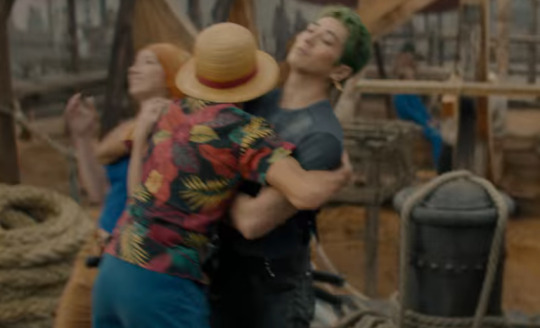
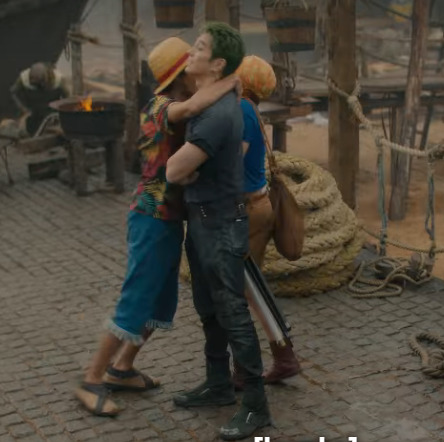
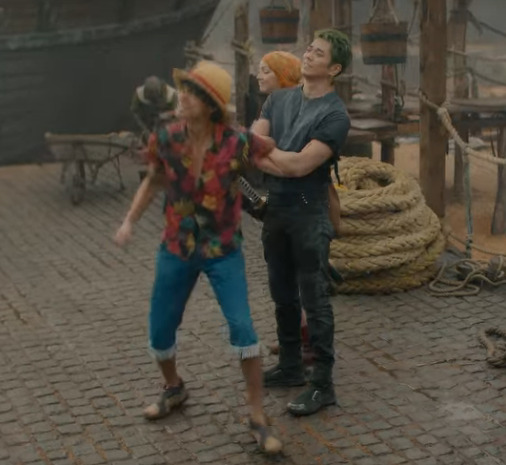
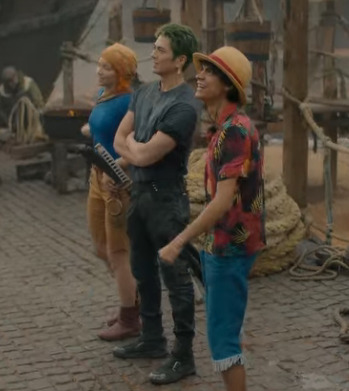
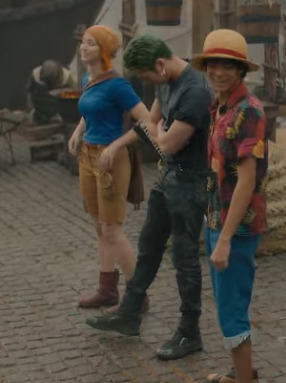
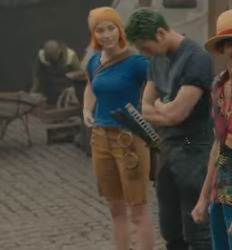
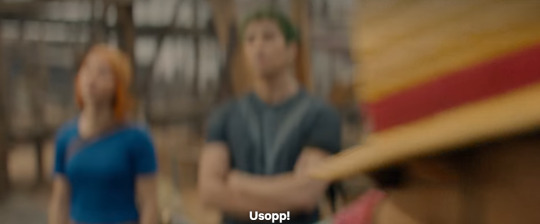
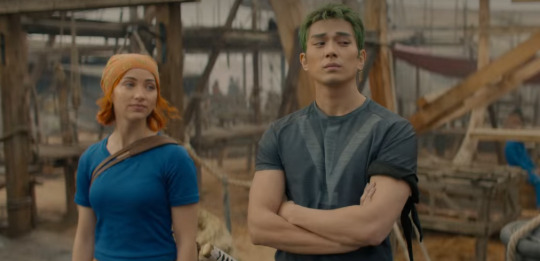
yk adorable group hug and luffy moment aside, did zoro just kick the ground . after he was hugged . is this show even real
sorry but the way nami went 🤨🏳️🌈 TWICE
#i love the opla i love the opla i would die for the opla#UGHHGGHGH LUFFY SHOUTING WITH HAPPINESS IS SO#inaki did graduate from the university of luffyoligy /ref#they mean everything to me u don't understand#they made everyone fruity as hell im#the kayasopp usokaya whatever the ship name kiss also counts#THEYRE SO CUTE?#sorry irrelevant i just needed to talk about it#THE AMOUNT OF JOY THIS SHOW IS GIVING ME i might die#IM GONNA DRAW SO MANY SCREENCAPS#JUST WATCH#(i cursed myself by saying that and now i never will)#one piece#op#one piece live action#opla#spoilers#min watches one piece#zolu#roronoa zoro#monkey d luffy#nami#iñaki godoy#mackenyu#emily rudd
5K notes
·
View notes
Text
Art commissions are open!
Design sheets are $3
Half bodies are $5
Couple pieces are $6
Here are some of my most recent examples!
More examples, options and prices can be found here: https://ko-fi.com/alice76346


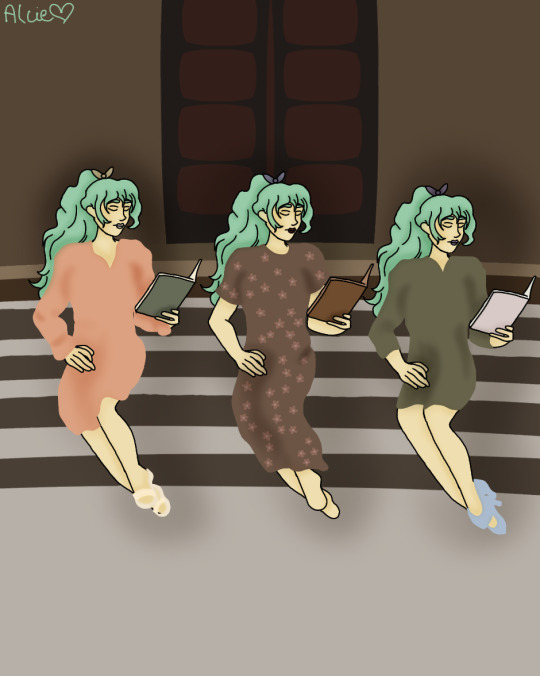
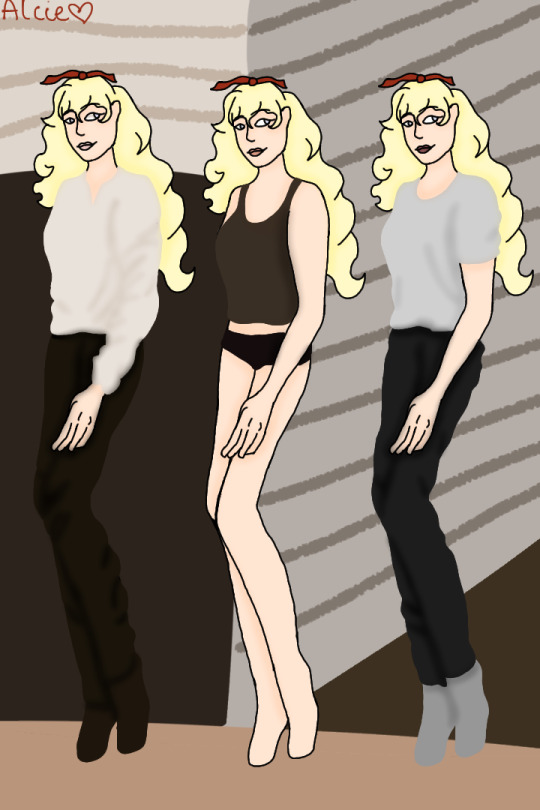
0 notes
Text
i feel like modern aus with paldulcie tend to place them as a well adjusted happy couple but ya know what. they are not innocent from the dyke drama. they've got an inappropriate age gap. ten years of long-distance letter writing. an unrequited marriage proposal. where are the aus where they're in a fraught on again off again situationship. they're in love. they're not dating. they're everything to each other. its not a relationship. camilla is also there.
#eskildit posts tlt#the locked tomb#bad idea right by olivia rodrigo is just palamedes in a modern au#and before anyone says its not even an inappropriate age gap..... i graduated from high school when you were 11 etc etc#shout out to the line in tug where dulcie says she had to remind herself that pal was a child........ hm....
1K notes
·
View notes